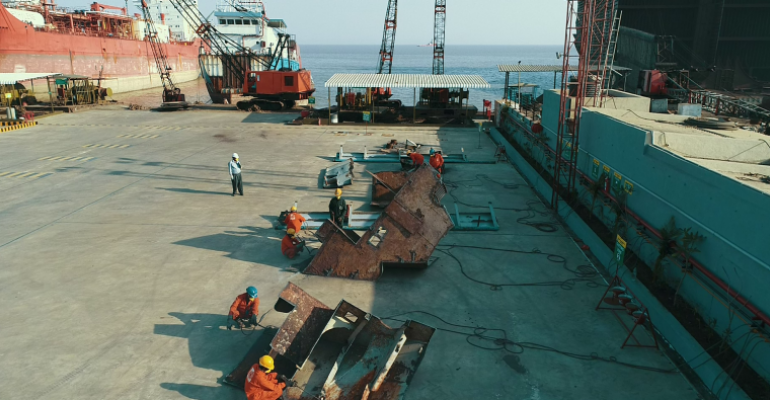The rally in demo prices, which saw rates more than double from a typical $250-260 per light displacement ton (ldt) at the height of the pandemic to well over $600/ldt over an extended spell in 2021, is looking unlikely to ease much over the early weeks of the year, experts believe.
According to the latest market report from GMS, the world’s largest cash buyer of ships for recycling, rates were softening a little during the final week of December, However, Bangladeshi recyclers were still paying a typical price of $610 for container ships, $600 for tankers, and $590 for bulk carriers at the end of the year.
Yards in Pakistan were about ten dollars lower, with Indian breakers paying a further thirty dollars less. Corresponding figures in Turkey were $350, $340, and $330, GMS said.
The challenge facing recyclers, particularly in Bangladesh, India, and Pakistan, is likely to be identifying possible demo candidates in the months ahead and where they will come from – both in terms of ship sector and geography. Container ships and bulkers are making good money and some tanker analysts believe that 2022 could see a revival in tanker owners’ fortunes.
Meanwhile, the steady supply of cruise and offshore vessels over recent months have mostly been sold to Turkish recycling yards in the Aliaga region, despite much lower prices. This reflects the failure of European regulators to approve any recycling facilities on the subcontinent, despite a significant number, particularly in India, having been validated and certified by international classification societies.
Many subcontinent yards have introduced more robust labour standards, training, working conditions, safety requirements, and waste management procedures.
Copyright © 2024. All rights reserved. Seatrade, a trading name of Informa Markets (UK) Limited.
Add Seatrade Maritime News to your Google News feed.  |

